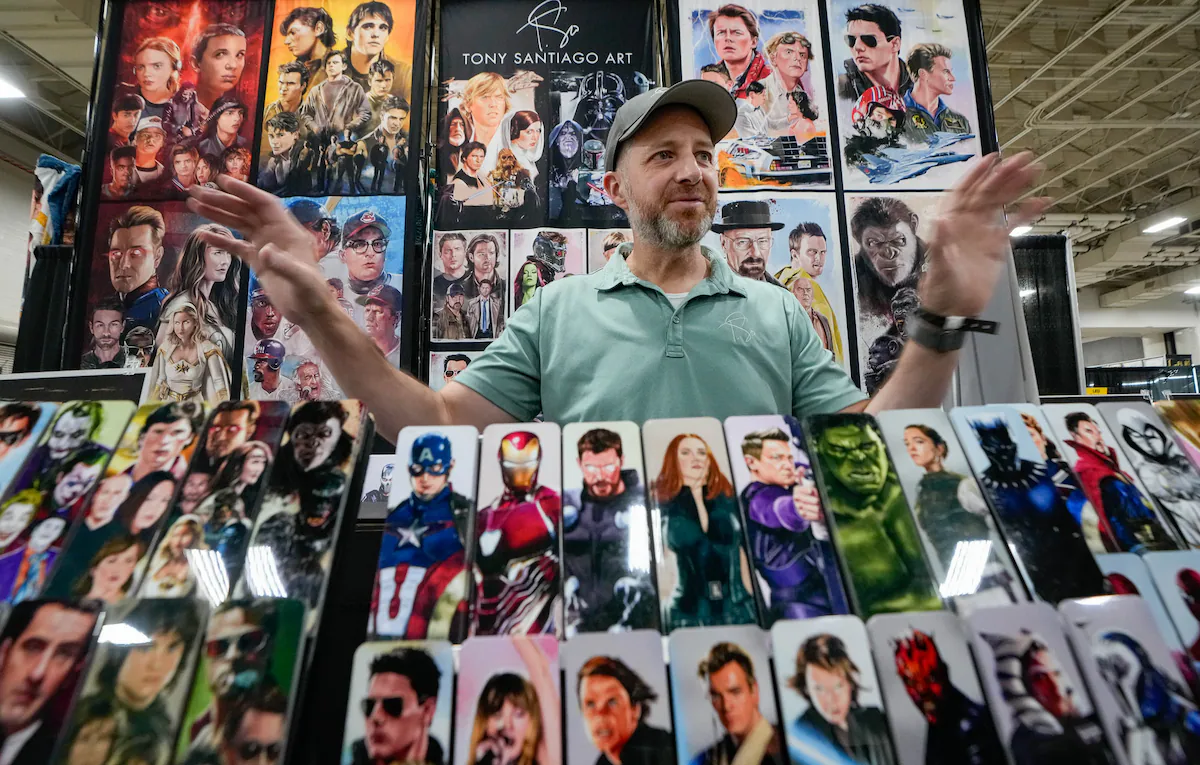
Every year, the expansive vendor floor at FanX draws thousands of devotees across fandoms, ready to spend their money on merchandise.
But this year, the Utah-based gathering is taking a stand against artwork generated by artificial intelligence gracing that packed vendor floor.
In early September, the organization sent a letter to artists and exhibitors that said:
“Our vendors and artists were handpicked and curated early this year, and we’re grateful for the incredible creativity and talent you bring to the show … That said, due to recent events and the evolving conversation around AI-generated art in the creative community, we are making an important update to our policies. We are asking that you DO NOT BRING or SELL any AI-generated artwork or merchandise at FanX.”
The letter goes on to acknowledge that this ask was not a consideration when artists or vendors applied but that FanX feels “it’s important to take a clear stance in support of human-created art and goods.”
Convention co-founder Dan Farr said the A.I. decision came about because it showed up at similar conventions elsewhere earlier in the year.
“It’s the artists that help build this convention. We want to support them,” Farr said. “We don’t want to have somebody who just has ideas and goes to generative A.I. and generates it and comes and competes against people that have done the hard work to get there.”
Generative A.I. is a term that refers to creative works — like art, written text, video or audio — that are created through prompts fed to A.I. technology. ChatGPT is a prominent example.
In the case of fandoms, A.I. can be used to make art based on your favorite book, character or film. Some fans have been outspoken against such artwork at conventions.
Farr said the letter was met with “a very warm reception” by vendors. There was only one — a small author, according to Farr — who decided to give up a spot on the floor after the message went out.
“Part of it is protecting the artists that are there,” Far added, “but the other part is the consumers should know if what they’re buying is A.I.”
On Thursday, vendors on the floor welcomed the first wave of fans. Chicago-based Tony Santiago of Tony Santiago Art has been coming to FanX since 2013 after Farr met him at another convention.
Santiago digitally draws hyperrealistic art for different characters (Marvel superheroes), movies (“The Breakfast Club” and “Harry Potter”) and celebrities (Taylor Swift) using Procreate and Photoshop. He sells prints and metal bookmarks.
He estimates his larger posters take him anywhere from one to two weeks.
Santiago said that fan conventions have a “Wild West” element. Artists make a lot of their own rules, he added, and because of that he can see why A.I. might intrigue people.
He can see A.I. being the next wave to help inspire artists, but Santiago said he has a problem with those who only use that technology and present themselves as artists.
“It takes me a long time to do this,” he said, gazing at the artwork spread around his booth.
“I’m sitting here going blind on this stuff, trying to make it happen, whereas somebody comes across and enters some prompts and comes up with artwork and says they are the artist,” Santiago said. “We shouldn’t be having that.”
Santiago said he is happy shows like FanX — one of his favorite conventions to attend — are speaking out.
“Hopefully,” he said, “we all work together to kind of keep it out of the environment.”
FanX continues through Saturday at the Salt Palace Convention Center.



